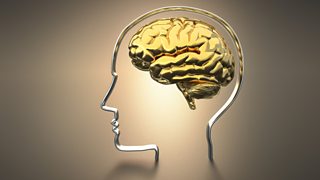Eight ways to boost your brain power
Ever been in a situation where you’re desperately trying to recall somebody’s name or a fact or place and you just can't remember?
We’re often told that memory declines with age along with other cognitive functions like reasoning and responses, but there are ways to rewire our brains.
Here are some smart tips and techniques to boost your brain power.

1. Exercise makes your brain bigger
It’s true! Our brains grow as we work-out. Exercising increases synapses, creates more connections within the brain and helps extra cells to form. Better cardiovascular health also means you are carrying more oxygen and glucose to the brain and removing any nasty toxins. If you can take your exercise outside then even better – you’ll have the added benefit of soaking up more vitamin D.
Tip: Bring together exercise with exploring a new environment, new ways of doing things or idea-sharing. This way you’re more likely to get those new nerve cells to form a proper circuit. For example, if you enjoy gardening, try taking on an allotment so you can make friends while you turn over the soil, or join a rambling group rather than going solo. Just make sure you enjoy yourself - it's the desire to partake which helps to boost the effects of exercise and social interaction on the brain.
2. Memorise on the move
A technique underpinned by research and long recognised by actors: if you rehearse words or try to learn something while you move around, the information is far more likely to stay put.
Tip: The next time you have a presentation or speech to learn, or a busy schedule to get your head around, why not take a wander or do a dance to help those memories stick?
What age do you need to start exercising to save your brain?

The importance of physical exercise to brain health with Dr Alan Gow, Research Leader and Associate Professor in Psychology.
3. Eat the right foods to fuel your brain
About 20% of your body’s intake of sugar and energy goes to the brain, making brain function entirely dependent on glucose levels. If your sugar levels aren’t controlled your mind can feel much more messy. (We all know what happens when you accidentally polish off a bumper bag of pick ‘n’ mix in one sitting…)
Eating food that you love releases the chemical dopamine in the reward area of the brain, which is why you get pleasure from eating it. But as well as feeding the brain’s reward pathways, you have to take care to feed your gut. There are over one hundred trillion microbes in the human digestive system, interconnected with your brain by the gut-brain axis, and the balance of these microbes is crucial for the wellbeing of the brain. In fact, the gut is often referred to as the “second brain”. A varied and healthy diet helps to keep those microbes in sync and the brain healthy.
Tip: Brain cells are made from fats, so it’s important not to eradicate fat from your diet. Essential fatty acids from nuts, seeds, avocados and fish are good for building the brain, along with rosemary and turmeric. And try to enjoy your meals with others when you can – socialising underpins the positive benefits of a good healthy diet on your brain.
Do pills which promise to enhance your brain work?

Sian Williams looks at the latest neurological research into improving cognitive function through medication.
4. Switch off and zone out
Some stress is necessary because it helps us to respond quickly in times of emergency: it produces the hormone cortisol which, in short bursts, gets us energised and helps us focus. But prolonged anxiety and high levels of uncomfortable stress are really quite toxic for the brain. It’s therefore crucial that we learn to switch off every once in a while to enable that part of the brain to rest.
And in switching off, you’re actually exercising a different bit of the brain. We have a particular network in our brain which is the default mode network - it’s the part that enables us to daydream and it’s important for consolidating memory. By switching off from our external world we’re enabling that part of the brain to be active and to do its job. The next time you’re caught daydreaming on the job just explain that you were doing a crucial cerebral work-out…
Tip: If you find it hard to wind down then why not try relaxation techniques such as meditation or mindfulness which can help stress hormones return to more helpful levels.
The best ways to de-stress your brain

Dr Hannah Critchlow, Neuroscientist at Cambridge University, on how calming techniques like mindfulness can help build a better brain.
5. Find new ways to challenge yourself
A key way to boost your brain is to challenge it to do or learn something brand new. For example, going to an art class or learning a new language enhances the flexibility of your brain.
Tip: Play an online game against friends or family. Not only will it challenge you, but competing against others means more social interaction – stimulation whilst interacting socially aids the brain.
6. Get your groove on
Evidence suggests that music stimulates the brain in a very unique way. When you look at the brain imaging of somebody who is listening to or playing music, almost the whole organ is active. Music may enhance general cognition, and musical memory is often the last to fade if we’re affected by conditions like dementia.
Tip: Join a choir or book to see your favourite band.
Can you test your way to a better brain?

Dr Hannah Critchlow, Neuroscientist at Cambridge University, on how best to challenge your brain.
7. Study for an exam in bed
If you learn something new during the day a connection forms in your brain between one nerve cell and another. When you sleep that connection is strengthened and reinforced, and the thing you’ve learnt becomes a memory. Sleep is therefore a really important time for memory consolidation. If you give somebody a list to memorise before sleep they will remember it far better the next morning than if you gave it to them first thing in the morning and asked them to recite it at the end of the day.
Tip: If you’re revising for an exam, try running through trial exam answers in your head as you’re drifting off to sleep. If you’ve experienced a traumatic event or have a bad memory try not to dwell on this just before bed because this can enforce the memory and strengthen the negative emotions attached to it. For the same reason, avoid horror films or scary stories at bedtime! Instead dwell on a few of the positive things you’ve learnt or experienced during the day and consolidate those instead.
8. Wake up well
We all know sleep is important. Less than five hours of sleep and you’re not as sharp mentally, whilst more than 10 hours and you can feel jet-lagged. But the key to helping you perform at your best throughout the day is all down to how you wake up. Ideally, sleep in a dark room and wake up with gradually increasing light. This light penetrates through the closed eyelids and primes the brain so that we have an enhanced awakening cortisol response. The amount of the hormone cortisol in your body when you wake up has a great effect on how well your brain performs in the day ahead.
Tip: Get hold of an alarm with a gradual sunrise feature that helps you to wake up naturally. (These can also incorporate a traditional alarm sound for the deep-sleepers amongst us.)
How to wake up with a better brain

Sian Williams analyses the importance of sleep to brain health with Professor Angela Clow.
-
![]()
Sian Williams presents a practical and optimistic guide to boosting brain power
-
![]()
There's widespread excitement about the potential of brain training to protect against dementia.
-
![]()
Researchers have found that if someone appears confident then we are likely to be influenced by them.
-
![]()
There's a very good reason why your mind seems to wander even when you try hard to switch off.




